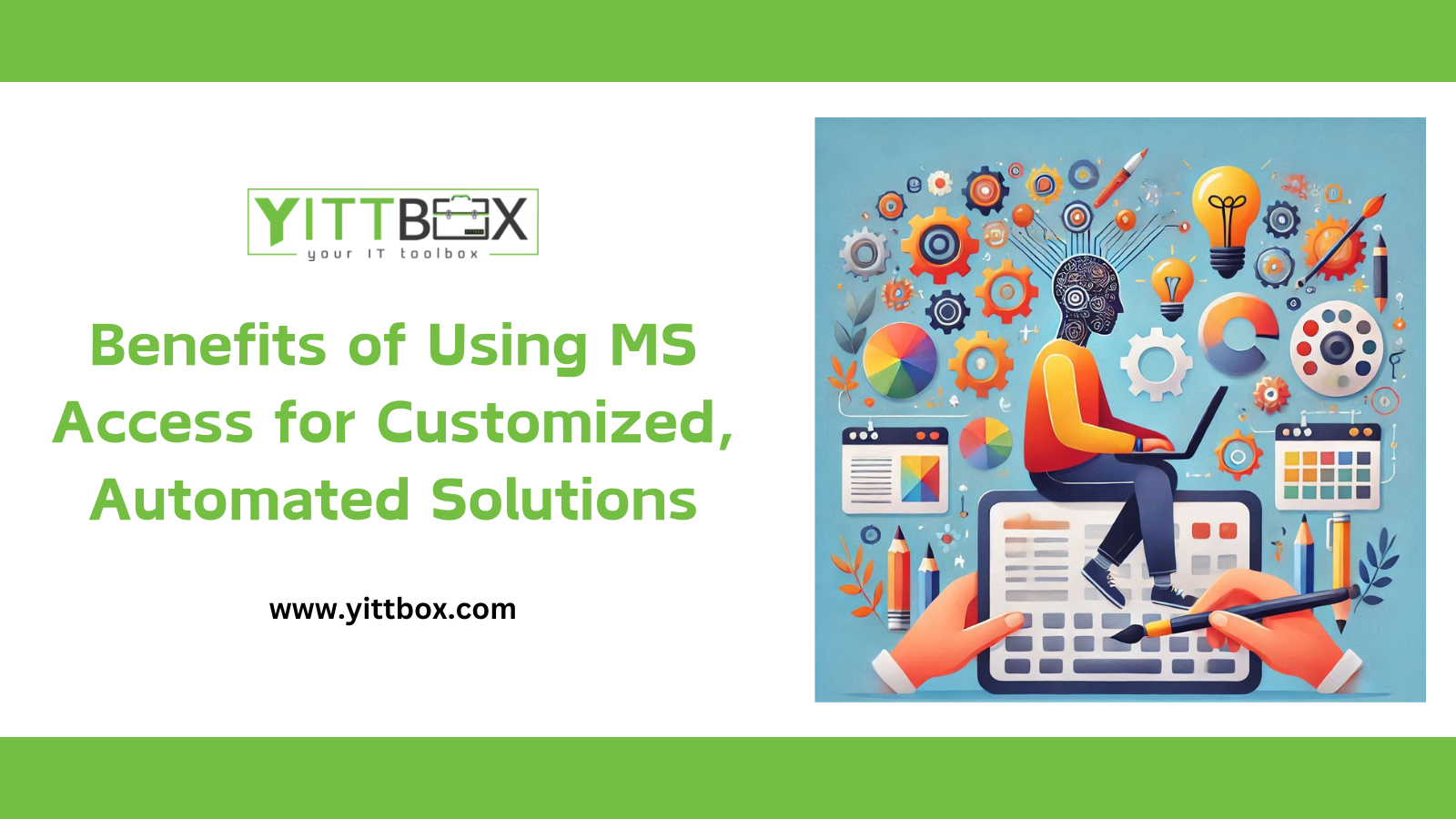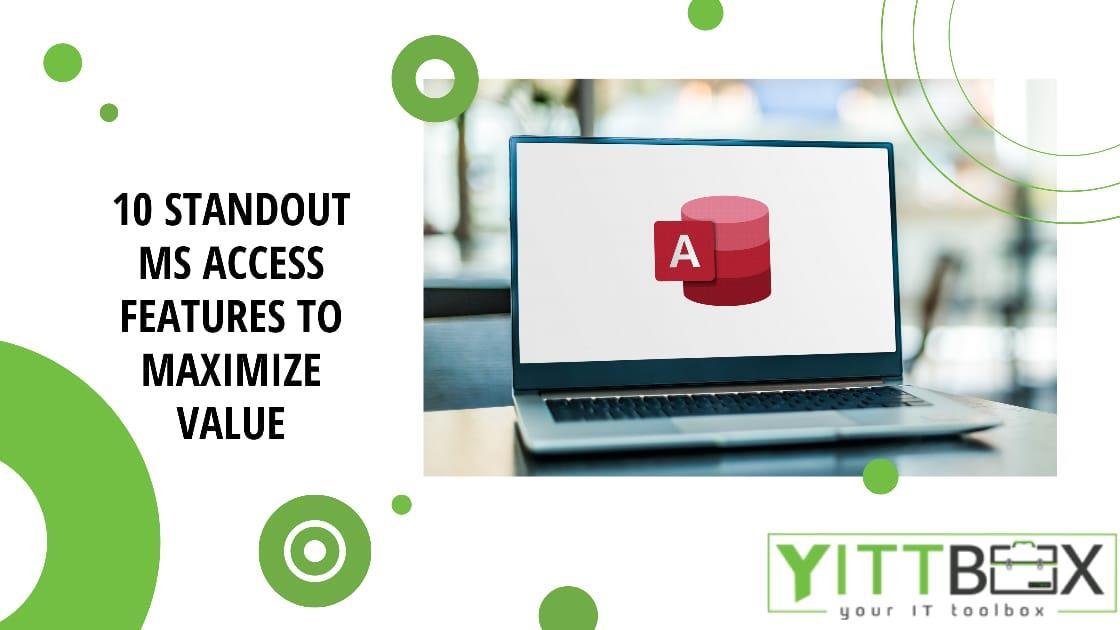Introduction
Microsoft Access is one of the most robust, yet user-friendly database management systems available today. While traditionally seen as a tool for small businesses, MS Access is a powerful platform that offers extensive capabilities for creating customized, automated solutions tailored to the specific needs of any industry. From streamlining business processes to reducing human error, the benefits of MS Access in automation are vast. This blog will explore these advantages, specifically focusing on how MS Access enables businesses to build tailored, efficient solutions through its unique features.
Introduction: Why MS Access for Custom Automation?
As businesses face increasing data complexity and growing operational demands, the need for customized solutions has never been greater. MS Access is a flexible and affordable tool that allows businesses to automate repetitive tasks and manage data in a more efficient and customized way. Using MS Access automation tools, organizations can create database-driven applications that minimize manual input, reduce human errors, and increase productivity.
With a high degree of customizability, MS Access is ideal for businesses that require specific, industry-focused solutions without the need for costly enterprise-level software. But what exactly makes MS Access a good choice for automated solutions? Let’s explore some of the key benefits.
1. Streamlined Workflow Automation
One of the most significant advantages of MS Access is its ability to automate complex workflows. Whether it’s automating data entry, generating reports, or managing inventory, MS Access allows users to create macros and automate repetitive tasks that are usually time-consuming and prone to errors.
Key Feature:
- Macros in MS Access allow users to automate common tasks such as importing data, updating records, and running queries. By triggering actions automatically based on specific conditions, businesses can ensure that data is handled accurately and in real time.
According to Microsoft, macros in Access can significantly reduce operational inefficiencies by automating recurring tasks, which can improve the overall efficiency of business processes.
Keywords: MS Access automation, workflow automation, custom solutions
2. Data Integrity and Accuracy with Automation
Automated systems help maintain data integrity and accuracy—two critical aspects of any database-driven business. By automating data input, updates, and calculations, MS Access minimizes the risk of human error that often leads to inaccurate reporting or inventory mistakes.
For example, in industries such as healthcare or financial services, where data accuracy is paramount, MS Access automation ensures that all data is processed consistently, reducing the chances of costly mistakes.
Case Study:
A financial institution used MS Access to automate the tracking of transactions and reports. The automation feature ensured that every new data entry was validated and formatted properly, reducing manual effort and the potential for human error.
Keywords: data accuracy, MS Access solutions, data integrity
3. Cost-Effective Customization for Small and Medium Enterprises (SMEs)
Custom-built software solutions can often be expensive, especially for small to medium-sized enterprises (SMEs). MS Access, however, offers a much more affordable alternative. It provides SMEs the ability to develop customized applications that meet their unique business requirements without needing extensive technical expertise.
MS Access comes with an intuitive interface that allows users to create custom forms, reports, and dashboards that are easy to integrate with existing business systems. As businesses grow, their data management needs become more complex. MS Access allows for the gradual addition of features, ensuring that businesses can scale their automated solutions without having to completely overhaul their system.
Benefit:
- No need for high-cost software development.
- Easily customizable to fit niche business needs.
4. Seamless Integration with Other Tools
A standout benefit of MS Access is its ability to integrate with other software tools, which is essential when building a fully automated system. Whether you’re importing data from external sources or creating custom reports, MS Access enables seamless integration with other Microsoft products like Excel, Power BI, and SharePoint, as well as third-party applications.
Integration Example:
A retail business used MS Access to automate inventory management. Data from their sales system was imported automatically into Access, and using integration with Power BI, sales trends and stock levels were visualized in real-time for better decision-making.
The ability to integrate with various systems makes MS Access a versatile tool for automating workflows and managing cross-platform data.
Keywords: MS Access integration, automated workflows, third-party tools
5. User-Friendly Interface with Robust Security Features
MS Access offers a user-friendly interface that doesn’t require advanced programming skills, making it accessible to both novice users and experienced developers. This simplicity enables businesses to create customized applications without extensive training or external help.
Moreover, MS Access includes robust security features that are vital for businesses handling sensitive information. Through user-level security and data encryption, MS Access ensures that only authorized individuals have access to specific data. This level of control is crucial for businesses needing to protect customer data or comply with regulatory standards like GDPR or HIPAA.
Security Feature:
- Password protection and role-based permissions ensure that different levels of access are granted based on user roles.
6. Scalability for Growing Businesses
As businesses expand, they need database solutions that can scale with them. While MS Access is often seen as a tool for smaller businesses, it can be scaled effectively to handle larger datasets by splitting the database into a front-end and back-end structure. For businesses reaching their data limits, Access can integrate with SQL Server to handle more extensive datasets while maintaining performance.
With these scalability features, MS Access can grow with the business, providing the flexibility to add features, users, and even link to cloud databases as needed.
Conclusion: Unlocking the Power of MS Access for Business Automation
MS Access is a powerful tool for businesses seeking to build customized, automated solutions without breaking the bank. By leveraging its workflow automation, data accuracy features, and seamless integration capabilities, businesses can create efficient, scalable systems that save time and resources. MS Access not only simplifies database management but also allows businesses to stay agile, adapt to growth, and maintain a competitive edge in their respective industries.
As technology continues to evolve, MS Access remains a versatile, cost-effective solution for businesses that need tailored automation solutions. Whether you’re automating reports, tracking inventory, or integrating with other tools, MS Access offers the flexibility and functionality required to meet the demands of any growing business.







